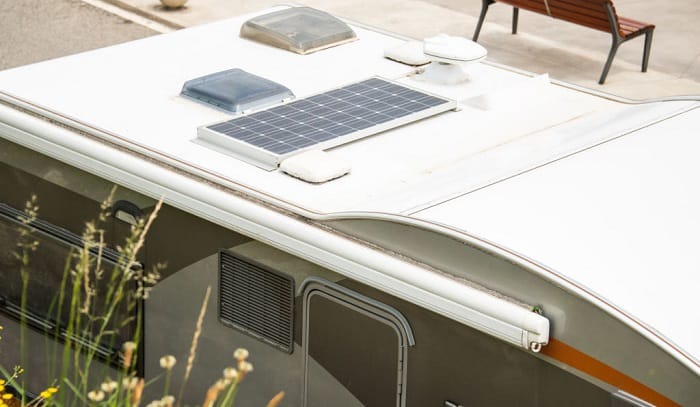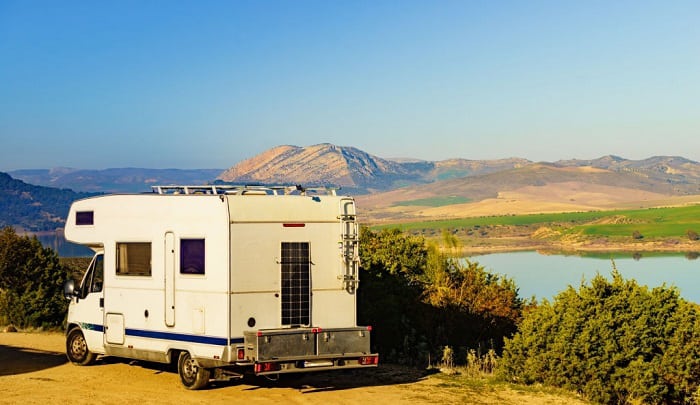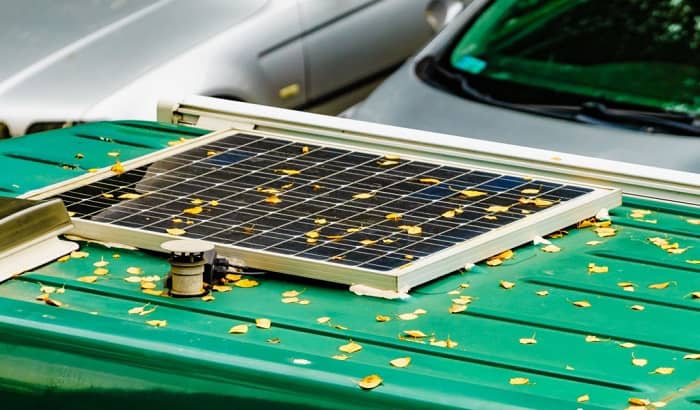Table of Contents
- What Is a 100-watt Solar Panel
- Is a 100w Panel Big? Is It Expensive
- How Much Power Can Your 100w Solar Panel Generate
- What Are the Other Factors That Could Affect Solar Power Generation
- What Can a 100 Watt Solar Panel Power
- Can You Run a House With a 100-watt Solar Panel
- What if I’m Planning to Go Off-grid? How Many Solar Panels Will Be Required
- How to Figure Out the Number of Solar Panels I Need
- The Bottom Line
When going solar, it’s vital to think about the solar panel you will use for your system. Solar panels are designed in different sizes and shapes; however, the 100-watt option is considered one of the preferred choices, especially for outdoor adventure enthusiasts. Now, the question is, how much power does a 100w solar panel produce?
Generally, the amount of power that a solar panel can generate largely relies on the amount of sun exposure it gets. For example, if you reside in a region that acquires an average of five hours of sun exposure, your 100W panel should generate 500W of power a day.
For more 100w solar panel output info, let’s explore the rest of this post.
What Is a 100-watt Solar Panel
A 100W solar panel is lightweight, portable, and is pretty straightforward to replace. It’s a well-known option for buyers who are into outdoor adventures like RVing, hiking, and camping. It’s relatively smaller as compared to a standard residential solar panel.
Checking 100 watt solar panel specifications is critical. Please note that while this unit does a great job of generating solar energy, it is ideal only for running small appliances. Of course, before going solar, you also have to dig up more about solar panels amperage.
If you opt for a 100-watt solar panel, you should pair it with a premium quality battery. Doing so will enable you to keep the excess power and consume it later when necessary.
Should you wish to read more about 100-watt solar panels, you might want to refer to this page.
Is a 100w Panel Big? Is It Expensive
100W panels come in different sizes as this largely depends on their design and efficiencies; however, their measurement is approximately 47 x 21.3 x 1.4 inches.
For starters, there are two options for you: purchase a 100W solar panel kit or get the 100W solar module. The kit already contains the charge regulator, solar module, brackets, and cables needed for installation.
The price of solar panels largely depends on their efficiency, the brand you choose, and the equipment contained in the package upon purchase. 100-watt starter kits that cost roughly $300 or above are available in the market, or you may also consider a standalone 100W panel that costs $100 more or less.
Lastly, the solar panel’s efficiency may depend on several elements such as the materials, solar manufacturer, and quality of the unit.
How Much Power Can Your 100w Solar Panel Generate
A 100W solar panel output can yield up to a hundred watts per hour. Nonetheless, please note that this is the maximum solar production the panel can generate – on days when there’s sufficient sunlight exposure.
In real-world settings, on most days, this power production will possibly be 280-watts up to 290-watts, and you should expect less during winter.
To ensure getting the desirable solar power production, solar experts recommend investing in highly-efficient solar panels.
What Are the Other Factors That Could Affect Solar Power Generation
Solar panels do not often generate maximum output due to several different reasons. Fundamentally, the rated solar production is for peak sun hours, which only occurs at noon. The intensity and angle of the sun also alter throughout the day.
Here are a few factors that can have an impact on your solar power output:
- Season
Solar panels can ensure excellent performance during the summer seasons when they can absorb more direct sunlight. During winter, you expect less solar power production because the sun is primarily out during this season.
- The orientation of the solar panel
Solar panels should be installed facing south because such an orientation allows them to acquire higher solar power production.
- Geographic location
In regions where there’s ample sunlight, solar panels typically generate about 450-watts to 480-watts per day. Examples of these places include some states in the US like Arizona, California, and Nevada. Other states in the US which are a bit colder may acquire merely 300-watts per day.
Since several different factors affect your panel’s solar power production, it’s essential not to expect much from your 100W panel. Keep in mind that longer days and ample sun exposure can produce more solar output. In cold seasons, expect your solar output to decline temporarily.
What Can a 100 Watt Solar Panel Power
For small business owners and homeowners who wish to set up a small-scale solar system installation, a 100-watt solar panel is an excellent unit to start.
Some of the appliances or devices you can run with a 100W solar panel include LED light bulbs, LCD monitors, smartphone chargers, and TVs. Furthermore, it can operate satellite dishes, modems, DVD players, and tablet chargers.
It’s also possible to run your ceiling fans, laptops, and cable boxes using a 100-watt solar panel. Be that as it may, you cannot run your AC unit, fridge, and heater with it. To sustain your power supply, you will require a battery.
While it’s okay to connect any battery to a 100W panel, solar manufacturers highly recommend a 100ah battery if you’re a beginner. Please note that your limitations will be your battery’s capacity and the power requirements of the appliances you plan to run. As for the batteries, you might run them at intervals or one at a time.
You can determine what you can and cannot run with one 100W solar panel by calculating the solar power production per day or month.
For a more detailed explanation of what you can run with a 100W solar panel, you might find this video worth viewing:
Can You Run a House With a 100-watt Solar Panel
You’re probably aware that setting up plenty of solar panels will be a complex task to manage. While many 100-watt solar panels can run a household, doing so is not a wise decision.
The majority of households require roughly 5 kWh or 10 kWh systems to operate all of your appliances, and this means you’ll need tens of 100-watt solar panels to make this possible.
Another primary concern is the space where you’ll install the panels. Indeed, to set up more panels, you’ll require many bolts, mounts, racks. You’ll also need to buy more connectors, wires, etc.
The good news is that the costs of solar panels at present have dropped. Hence, investing in a 400-watt solar panel is less expensive than buying four 100-watts solar panels. There’s no doubt that a 100W solar panel is pretty useful; however, running an entire household with it seems impractical.
What if I’m Planning to Go Off-grid? How Many Solar Panels Will Be Required
In this case, let’s assume we have several 100W solar panels and you’re planning to supply power to your home. There is no access to the grid, and the only available option for you is to go solar.
Let’s say that each panel acquires approximately eight hours of direct sun exposure daily since your system is roof-mounted. A 100W panel acquiring eight hours of sunshine a day will generate nearly 1 kWh a day. So, if you multiply 1 kWh by 365 (days per year), you’ll have a solar power production of approximately 365 kWh yearly.
From there, you can start evaluating this output with your power usage. To make the computation and comparisons easier, you can use a solar calculator.
How to Figure Out the Number of Solar Panels I Need
To get started, write down all the appliances you intend to operate at home. The most valuable appliances you need to consider may include a fridge, lighting, fans, TV, microwave, water pump, etc.
You may use a solar panel calculator in designing your solar system and compute for your energy requirements.
The Bottom Line
In a nutshell, a 100W solar panel works fine to run a few small devices at home, on a recreational vehicle, or during camping. It’s an ideal choice because it’s portable and great for diverse applications. But, before investing in one, you need to answer the question: “How much power does a 100W solar panel produce?”
As discussed, a 100W solar panel can generate up to a hundred watts per hour. But, this can also vary as the solar output may also depend on several factors like:
- The orientation of the solar panels
- Geographic location
- Season
If you’re planning to go solar, using a 100-watt solar panel is a great way to start. However, you should be aware of its limitations.

As the founder of the Avasolar team, I aspire to solve the problems for households in selecting, installing, and utilizing solar mechanical devices.



